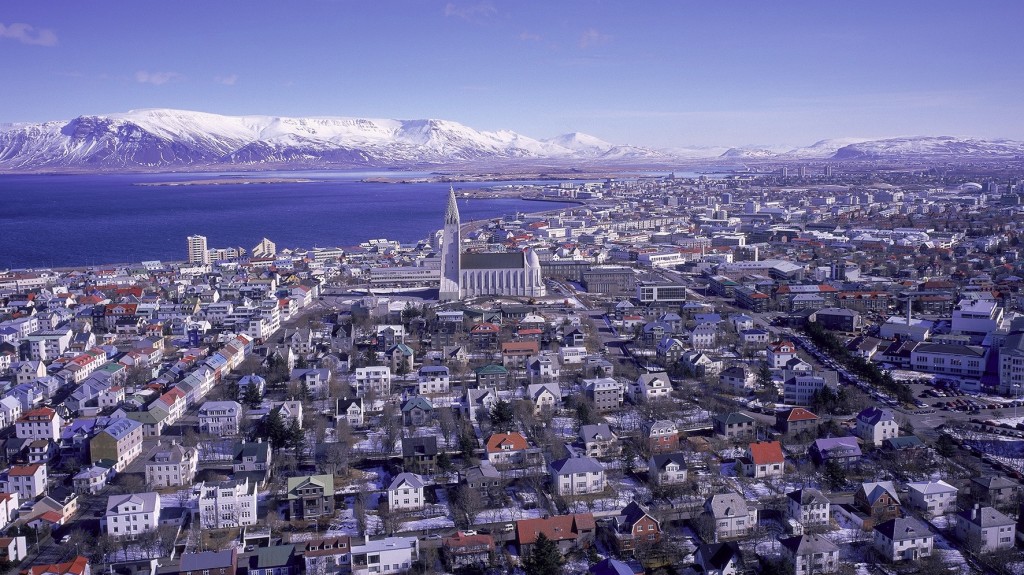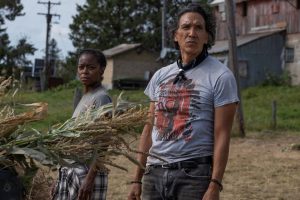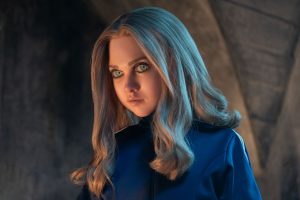Reviews include 40 Acres, Jurassic World: Rebirth, and Sorry, Baby.
Ice is Nice: 2015 Reykjavik International Film Festival
October 14, 2015
by Jason Gorber
On the outside, it may seem like Iceland’s Reykjavik International Film Festival feels very much like the greatest hits of art films from larger festivals playing for the first time to a Nordic audience. But what sets RIFF apart from the other so-called “B-festivals” are its unique location, a specific take on programming, and some remarkable guests of honour.
Nobody flies to a volcanic rock smack dab in the middle of the Atlantic (in the first week of October) strictly to see movies, yet RIFF shows that that’s a perfect sane venture. The country itself is rather mindboggling, and Reykjavik is a a quaint and charming city core filled with warm and welcoming people. In contrast, the surrounding countryside is a formidable, primeval landscape that feels both endless and timeless.
RIFF does a terrific job of making sure visitors get a sense of the place outside the multiplexes. A day trip to filming locations was a treat, visiting locations used in numerous Hollywood epics including Nolan’s Batman films, Ridley Scott’s Prometheus, and Darren Aronofsky’s Noah, as well as several locations straight out of Westeros from Game of Thrones. On a separately arranged trip I even managed to SCUBA dive between the continental plates of Europe, floating in near-freezing crystal clear water filtered through kilometers of volcanic rock. It’s the only dive I’ve ever made where one finishes up by dunking your head in the water and taking a big gulp.
The special guests of honour this year were Margarite Von Trotta and Toronto’s own David Cronenberg, and both did special masterclasses for the public, as well as private sessions for the “talent lab” of young filmmakers (many of whom came over from Canada). The Canadian connection to the festival is deep – Helga Stephenson, former head of TIFF and now of the Academy of Canadian Cinema and Television, plays a major role with the fest, and there were dozens of familiar faces walking about Reykjavik as part of this Canuck contingent.
At the Golden Puffin celebration at the President’s house to bestow upon these two honorees (a house which is painted, of course, white) the honourable Ólafur Ragnar Grímsson mentioned to a crowded group that Iceland had no statuary of generals, but there are dozens of writers and poets. This is the land of the saga, a place where Viking culture for millennia has told tales both of this earth and the next realm. There’s a wonderful feeling of narrative about the place, an embrace of deep and rich storytelling that informs their films and allows their audiences to be eagerly receptive to stories from all over the globe.
Cronenberg’s masterclass was, as expected, a delight, with the filmmaker being his usual wry self, poking fun at the Weinsteins and talking about the changing landscape of cinema reception and distribution. As David is often loathe to speak of cinematic references, preferring instead the literary basis for many of his projects, I tried to get around this by asking about his earliest memory that first made him go in the direction of film rather than taking the path of a novelist (a path, it should be noted, that he’s recently rejoined):
“I was never a film nerd,” David responded, “I was kind of a literature nerd. In Toronto we’re almost literally halfway between Europe and Hollywood. I was influenced by films by both places. As a kid I saw cowboy movies, sword fighting movies, Errol Flynn as Robin Hood, but I never thought of myself as making a film. Films seemed to come from somewhere else, it wasn’t something you could do.”

Two industry programmes that I caught also were quite informative. The first included reps from Venice, Telluride, Cannes and TIFF; festival ambassadors were on hand to tell young filmmakers a bit about the behind the scenes process of selection and scheduling. The most passionate response came from RIFF’s main programmer Giorgio Gosetti, who poetically described his main job of selecting for the Venice Days sidebar as working like an orchestra conductor, ensuring that films flow with varying moments of quiet and loud, forming a cohesive and pleasing balance without monotony.
The second panel was about the collaboration between Danish and Icelandic filmmakers, particularly the growing cooperation between the famed Danish Film Institute and its process for funding projects. It was fascinating to hear about their separate streams for funding – one adjudicated on commercial grounds, one strictly artistic – and how the small country is dealing with keeping up the momentum of creative excellence they’ve witnessed since the Dogme 95 explosion of a few decades back.
Of course, it’s not all vacation, masterclasses and presentations—the films themselves are a big draw to head to RIFF. A screening of Lulu in the Nude had a number of filmmakers, including famed Icelandic director Baltazar Kormikur, paying tribute to the late filmmaker Sólveig Anspach. The quirky film about a seaside escape was both charming and effective, a convincing twist on this tale of a mother with wanderlust. The Closer We Get is another complex drama about familial responsibility, with the documentary providing in great intimacy insight into a very strange relationship dynamic.
The family theme continued with Ingrid Bergman: In Her Own Words, a fine and accessible documentary tracing the career of this icon of cinema told through her diary entries and the recollections of her children. The film paints a rich portrait of the woman, showing the decisions she made weren’t always the ones expected of her, fighting off often rapacious hostility from fans and government alike due to her choices as a strong minded woman.
The highlight by far was Sparrows, a wonderful Icelandic film that also bowed at TIFF and won an award at San Sebastian. This coming-of-age drama is mighty rare for an independent film in that the third act is its strongest, building to an unforgettable conclusion that’s both sophisticated and deeply provocative. Shot in the Western part of the Island, the film solidifies the recent trend discussed by those Danish producers, where producers, cinematographers and even state funders are starting to more and more look away from Copenhagen for other narratives that they can help bring to life. This synergy between the extraordinary capabilities of the Danes coupled with a long tradition of storytelling in Iceland has seen a flourishing of fine works that include the award-winner from Cannes, Rams.

Then there’s Chevalier, a very different family thrust together on a boat that decide to have a game to decide the champion, where the competition is basically every move that each person makes. A rumination on the power dynamics within social strata, the highly allegorical movie still manages to be humourous and engaging, buttressed by a visually stunning Mediterranean setting.
All in all, RIFF proved to be just as fantastic as one could hope from a festival experience, and that’s not just the hot springs talking. Only the scattering of sheep, the rising steam from the geothermal plants, and the constantly churning weather break up the otherwise tranquil beauty of the place.




